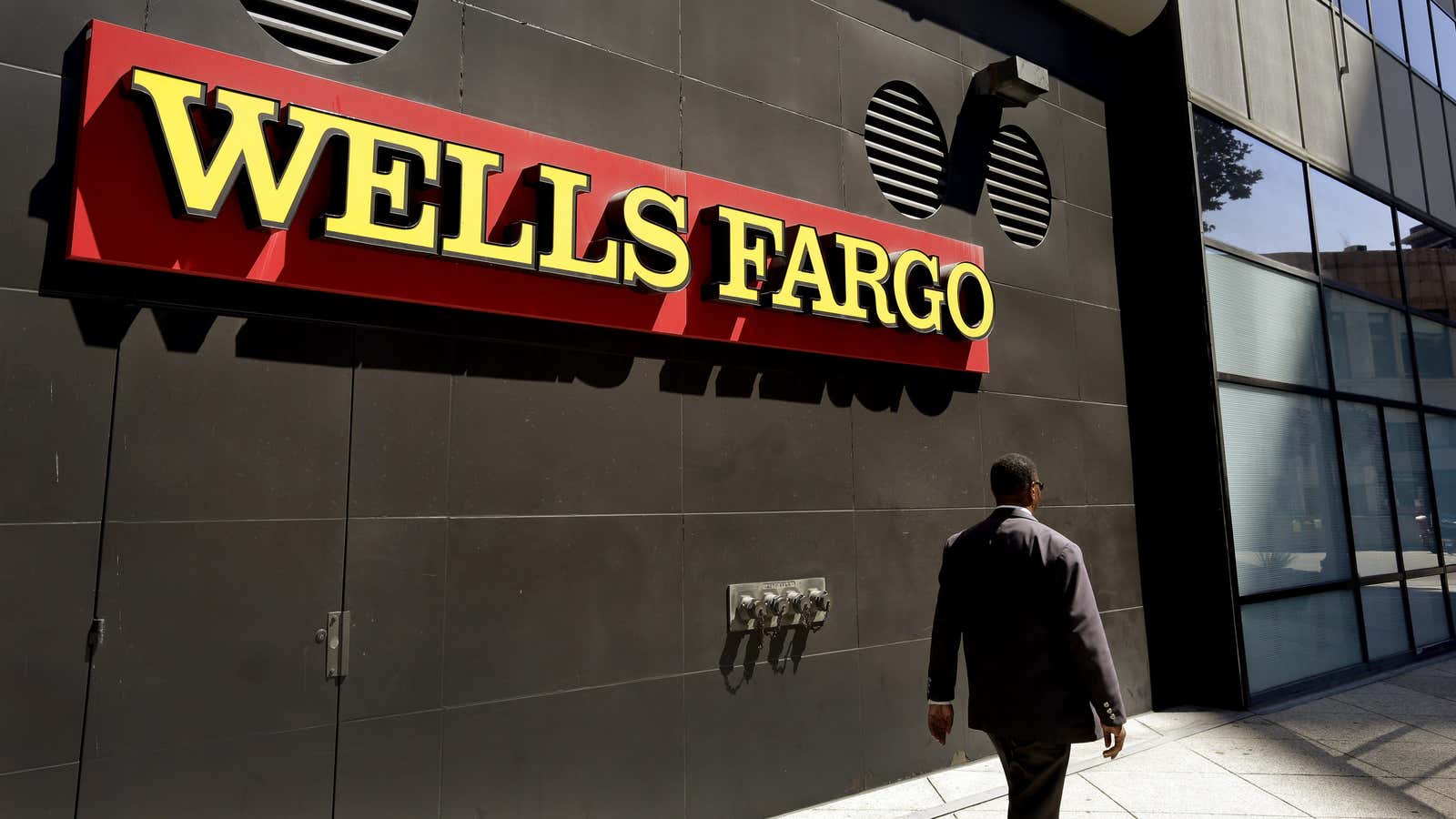Wells Fargo doesn’t just have a mission statement. It has a 37-page “Vision and Values” brochure that explains, at length, how the bank puts its customers first. The document uses the word “trust” 24 times.
“Our ethics are the sum of all the decisions each of us makes every day. If you want to find out how strong a company’s ethics are, don’t listen to what its people say. Watch what they do. This is even more important in our industry because everything we do is built on trust.”
Wells Fargo’s high-minded ideals failed spectacularly when it was revealed today (Sept. 8) that thousands of employees opened deposit and credit-card accounts for customers—without their knowledge—to meet sales targets and earn bonuses.
The scale of the fraud is stunning: According to the Consumer Financial Protection Bureau, employees opened more than 2 million unauthorized accounts, sticking customers with almost $2.5 million in fees. As a result, the bank has fired 5,300 workers tied to the scandal and will pay a record $185 million fine. Wells Fargo must also set aside $5 million to repay customers. In a letter to employees, CEO John Stumpf called the employees’ actions “inconsistent with the values and culture we strive to live up to every day.”
But if Wells Fargo’s employees weren’t meeting its external values, they were at least acting according to its internal ones, which emphasize “cross-selling”—selling existing customers multiple products—and put employees under intense pressure to meet sales quotas. The Wall Street Journal, reporting last year on a lawsuit filed against the bank by the Los Angeles City Attorney, said employees would meet several times a day to review their sales targets. One employee in San Diego complained about daily and hourly targets set by his branch manager, as well as quarterly targets set by district managers.
Those aggressive techniques helped Wells Fargo overtake China’s Industrial & Commercial Bank last year to become the most valuable bank in the world. The company posted 2015 revenue of $86 billion, and has 268,000 employees. As part of its settlement, those employees may have to undergo training to prevent “improper sales practices.” Wells Fargo also agreed to have its sales practices reviewed by an outside consultant.
“We regret and take responsibility for any instances where customers may have received a product that they did not request,” the company said in a statement. Wells Fargo could not be reached for comment.
A corporate culture can be influenced by the words and actions of its executives, and mission and value statements can help set a tone. But virtuous words are unlikely to overcome the more powerful emotions of fear and greed. Like all economic actors, bank employees respond to incentives, and if the culture rewards sales at all costs, and punishes those who fall short, it’s not surprising that employees will cut corners. If a company is serious about ethics, it will adjust its expectations of employees to make sure they’re obtainable. A good company creates an incentive structure that rewards the behavior it wants.
Wells Fargo may have gotten that message. In a statement, it said it has ”strengthened performance measures that are tied to customer satisfaction, loyalty and ethics.”
In an interview after this article was published, Wells Fargo spokesperson Richele Messick said the employees who opened unauthorized accounts were a small fraction of its total workforce, and the company has taken steps to reform its sales practices to help prevent future episodes. Employees will still have sales targets, but will also be rewarded for how well they meet customer needs. “Definitely there were failures, and that’s why we’re making fundamental changes,” she said.
